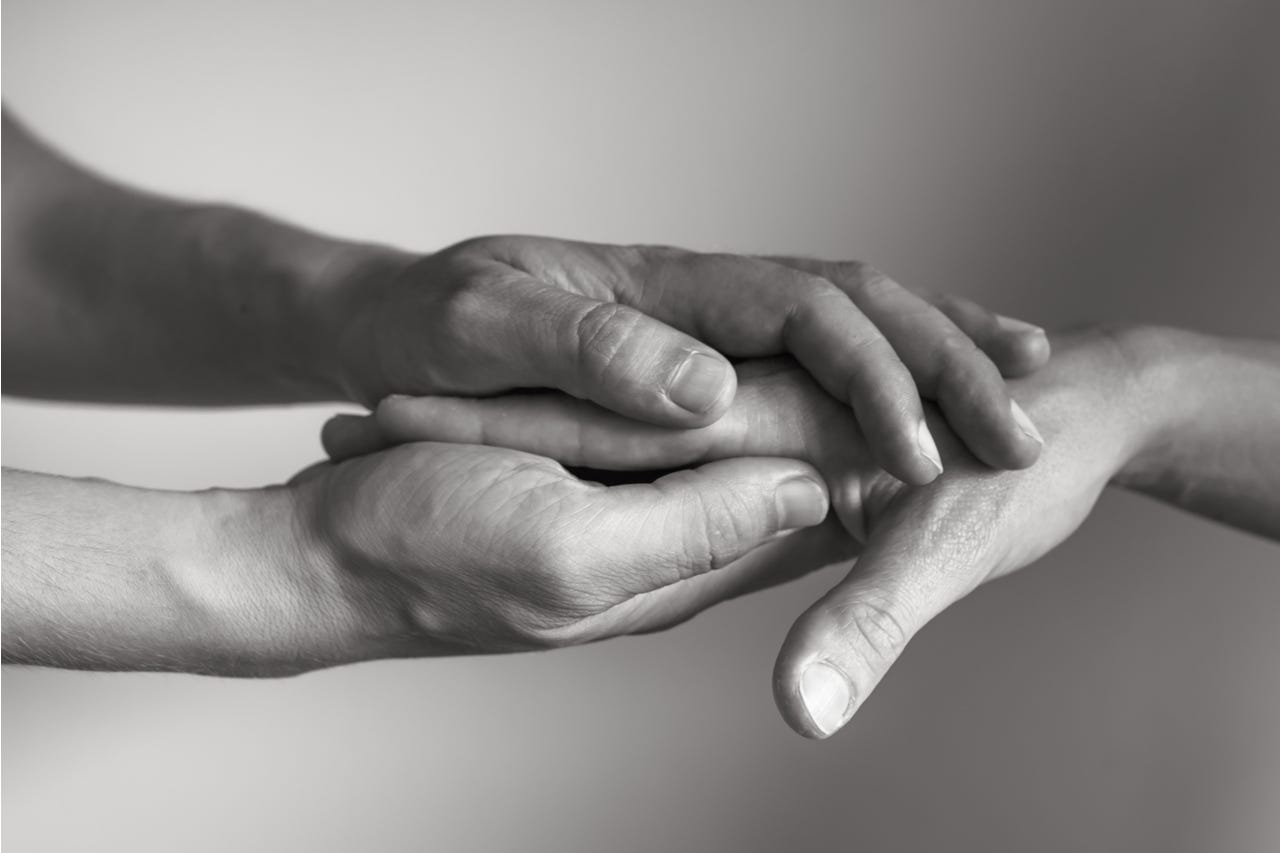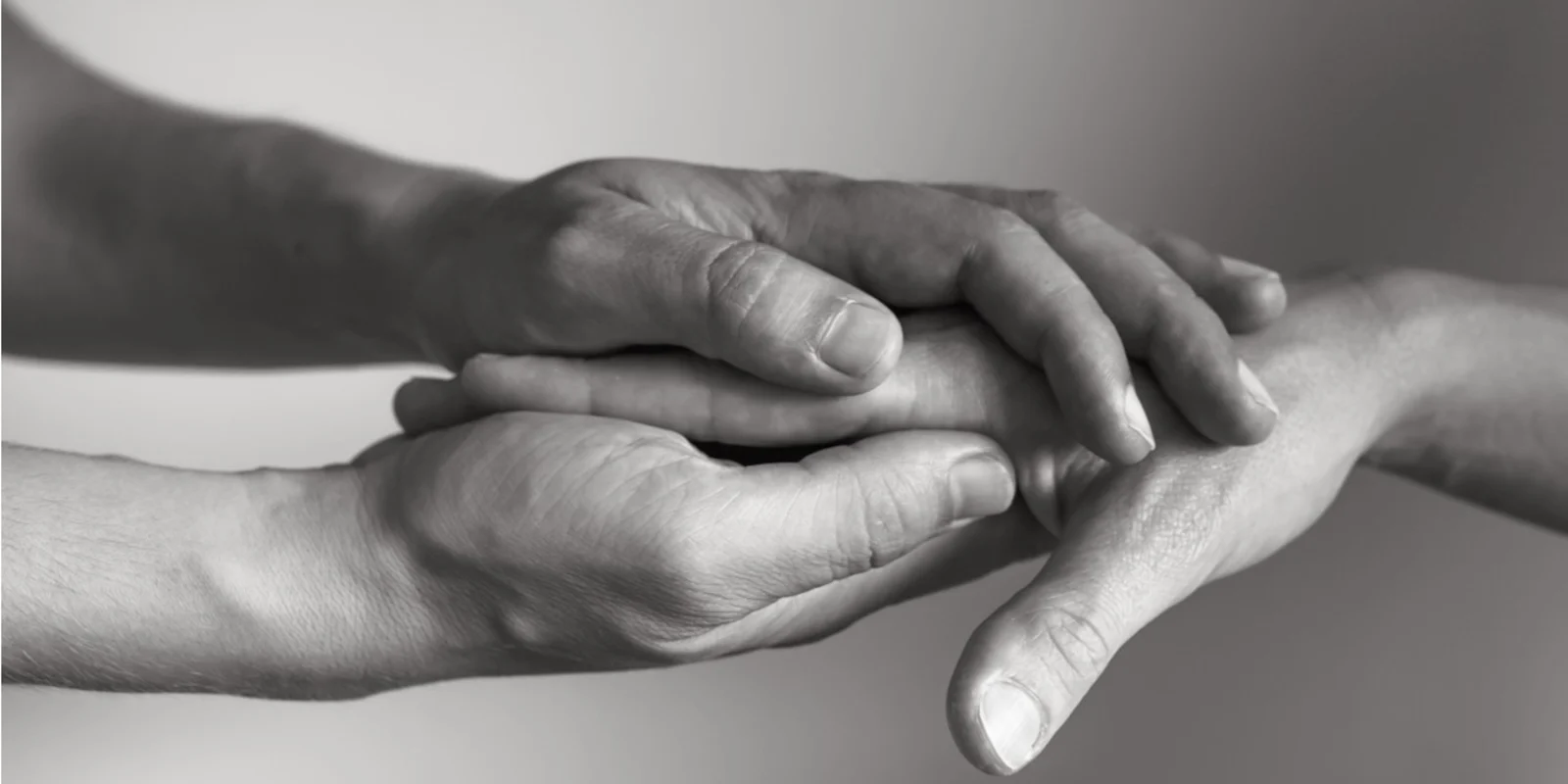
A very unexpected thing happened this morning. I received an email that a former patient of mine had passed away almost exactly a month ago. I had emailed her to let her know I was thinking about her and wondered how she and her beautiful baby girl were. I got a not from her but from her mother, saying that she has passed and that the baby was doing well.
Initially, I felt stunned, taken aback. I had just heard from her only a few months before. I drove stunned and numb as I went to drop my son off that morning at school. “It was an expected outcome,” I told myself. “She had ALS, and we did all that we could.” But, as I sat in my car only an hour and a half later, shock turned to realization, and the water gates broke.
My heart was broken, but it had not so much to do with that a “patient” had died. It was more that a person with whom I had connected, become a partner in her health, and watched courageously live despite her diagnosis of ALS had made her transition. It was a mixture of extreme sadness and deep inspiration and admiration for her spirit.
Let me tell you about this courageous young lady. When I first met Lori, she was 35 with an early diagnosis of ALS. She came to me seeking integrative therapies as an adjunct to her current care. What I first noticed about her was her warmth and lightness. It was clear that her diagnosis did not define her. We consulted and made a plan for follow up. Over the next few months, I watched a slow decline in her speech and movements, and though she had to continue to make modifications in her job and at home, her attitude remained positive and her spirit remained faithful.
One thing she told me was that she deeply wanted to become a mother. She had been advised against it, but it was something that was very important to her. One day, after some of not seeing each other, she came in for follow up. She was four months expectant, and though she could not speak (she had to write to communicate), she glowed as if there were no diagnosis at all. It was then that I got my first pang of sadness; I could see the progression and the inevitable. At the same time I was happy, because I knew this was what she truly wanted. I choked back my own tears that day to be in celebration of her. That following May, I received and email from her that she had delivered a beautiful baby girl; she sent a picture, too. In her note she included this: “My daughter is perfect in every way and I thank you because you set me on the path to better health.” That was the last communication I received from Lori.
This past weekend, Lori was heavy on my mind, which was what prompted me to email her. I wrote her on February 6th; she had passed January 10th. I know this may seem trite, but I’d like to think it was her spirit reaching out to let me know of her transition and that she was at peace.
I cried a lot today. Part of me wondered why I’m so affected. Yes, Lori was very special, but death and loss is part of what we have to deal with a physicians. We work to save and extend life everyday, but in the back of our minds, we know this is part of what we signed up for, right? Yes, however, just because it’s part of the process, it doesn’t make it hurt any less. We are human too. We connect, bond with, and come to love many of our patients. We feel the pain of loss and grief when they die. I think this is what makes us better doctors — acknowledging and allowing for our humanity. The moment we lose that, we lose ourselves.
In the end, I think the pain I feel is not so much for my loss, but for her husband, who was devoted until the very end; for her parents, because no parent should have to bury a child; for her daughter, who will never get to fully experience how amazing her mother was; and for all of those who ever have to watch a family member decline with this terrible disease.
Lori was the epitome of life fully lived. She never let her diagnosis slow her down or stop her. She didn’t let it define her actions, nor did she allow it to take away her dream of becoming a mother. She loved fully until the end.
I am so grateful I was able to be a part of her life and contribute in whatever way I did. Thank you, Lori, and may you rest in peace.
Note: This article was written in dedication to Lori’s life, and with the full permission of her family.







